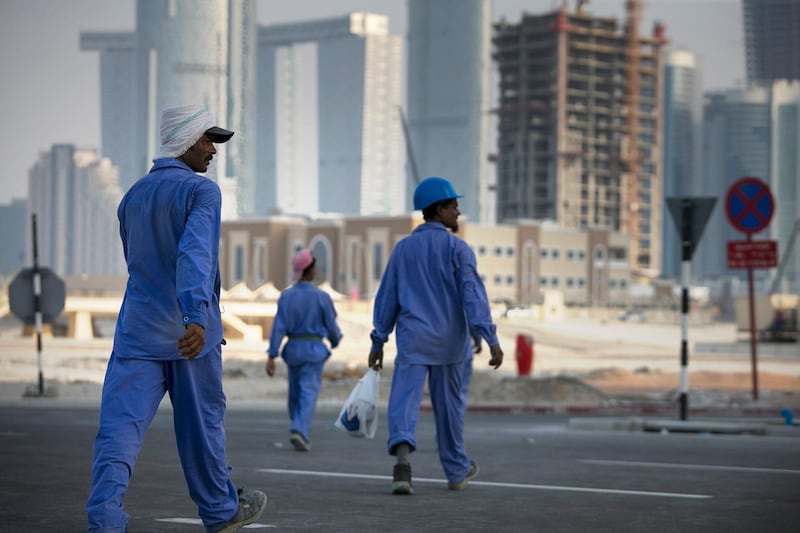Compassionate treatment of the least fortunate is a marker of any healthy, just society.
In the UAE, which draws people from around the world wishing to work hard, save and forge a better future, the broad scope of the population includes those from a variety of backgrounds and means.
And while most manage to do just that, others are not as lucky. That is why the so-called happiness card, which will cover food, transport and other costs for low-income workers locked in disputes with their employers and bereft of their wages, is such an important measure.
Last year, prosecutors in Abu Dhabi dealt with nearly 10,000 labour disputes, most of them wage-related. While the number had fallen from 16,897 the previous year, that is still 10,000 too many.
If a company collapses or an employer flees the country, low-income workers are left cash-strapped and helpless, unable to cover basics such as food and shelter and with no safety net to fall back on.
Some cannot even afford to travel to court. This is therefore a vital and humane step for those with the greatest need.
The introduction of cards is the latest in a string of measures to mitigate the effects of disputes between companies and those dependent on them, thousands of miles from home.
New cabinet measures in 2016 improved the wage protection system, which tracks whether employers pay their workers on time.
And a new employee insurance policy, rolled out in October, safeguards low-paid workers by ensuring they receive holiday allowance, unpaid wages and return flights in case of injury.
But despite the threat of fines, late payment of wages remains an issue, particularly in the construction sector, which employs more than half a million workers in Dubai alone, from countries such as India, Pakistan and Nepal.
It is worth remembering that non-payment of wages in the UAE has vast ramifications not just for workers but for their extended families awaiting remittances.
During a recent health awareness drive in Jebel Ali, doctors from the Pakistan Association Dubai found depression was a major cause for concern among labourers in the emirate, most of whom go months and sometimes years without seeing their families.
We must spare a thought for the most vulnerable in society and ensure that they at least receive their salaries and benefits.
More could still be done, including providing psychological support to those who need it.
But issuing cards so those left short-changed by their employers can at least have their basic needs met is a vital step in the right direction.





